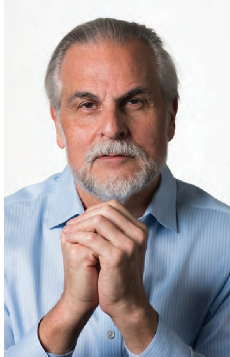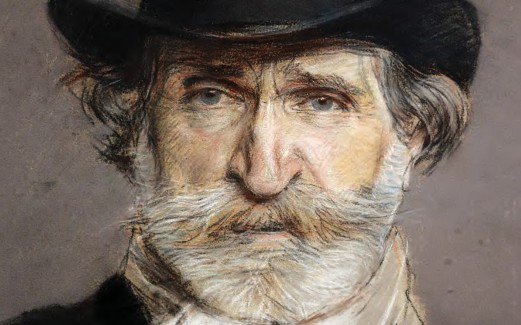A Verdi Concert
An interview with Marina Harss, writer and Journalist
 As many of you know, the operas of Giuseppe Verdi have a long history at Sarasota Opera. From 1989-2016, the company undertook an ambitious “Verdi Cycle,” during which all of Verdi’s operas, and their variants, as well as Verdi’s other musical compositions, were performed. Sarasota Opera is the only company in the world to have undertaken such a project, which is why Sarasota can truly be considered Verdi’s home outside of Italy. The Sarasota Opera audience is as knowledgeable and passionate about Verdi as any audience in the world.
As many of you know, the operas of Giuseppe Verdi have a long history at Sarasota Opera. From 1989-2016, the company undertook an ambitious “Verdi Cycle,” during which all of Verdi’s operas, and their variants, as well as Verdi’s other musical compositions, were performed. Sarasota Opera is the only company in the world to have undertaken such a project, which is why Sarasota can truly be considered Verdi’s home outside of Italy. The Sarasota Opera audience is as knowledgeable and passionate about Verdi as any audience in the world.
Verdi’s music has continued to be central to the company’s identity, as it is to opera in general. During the 2024 winter season, the company performed his Luisa Miller, a tragedy full of drama and deceit set in a village in the Alps. And in the upcoming winter season, it will perform Stiffelio, an opera about the struggle between faith, love, and forgiveness.
This fall, however, the company presents a concert of arias, duets, and ensembles from a range of Verdi Operas, nine in all, spanning most of Verdi’s career. The earliest is I Lombardi alla prima crociata (1843), the latest, Aida (1871). In between, there will be moments from such beloved works as Rigoletto (1851), La traviata (1853),and Don Carlos (1867). It will offer the audience new perspectives on his music.
Recently, Maestro DeRenzi spoke about what can be gained from performing Verdi in concert, why he chose these particular works, and how Verdi wrote different music for his characters, depending on the situation they were living through.
What is the advantage of a concert devoted to the music of Verdi?
Why did you choose these particular operas?
There are some familiar arias and duets, but I tried to find works that aren’t often done in concert form. Like the duet from Rigoletto that ends the concert, “Piangi, fanciulla,” for Rigoletto and his daughter Gilda. It’s one of the great moments in Verdi opera, but it’s not something that is usually performed outside the context of the opera. And “Ella giammai m’amò,” from Don Carlo. The man who sings it was perhaps the most important leader in the world at the time, King Philip II of Spain, but he feels the same things we do. To me, Don Carlo is one of the first works of verismo, an opera about real people. The characters in that opera, although they are aristocrats, feel the same loves and disappointments we all experience.
And what about a lesser-known piece like the trio from I Lombardi alla prima crociata “Qual voluttà trascorrere”?
People often say that Verdi had a special ability to convey the stories of father- daughter relationships because he lost his wife and two children very early on in his life. But more importantly, in my opinion, is that he often wrote scenes in his operas about a character who is dying and another character who is holding on to them, saying “Please don’t leave me, don’t go.” That’s what this trio is about. You have that in La traviata, La forza del destino, I masnadieri, and elsewhere. And the first time this happened in a Verdi opera was in I Lombardi.
“Tardo per gl’anni e tremulo,” from Attila, is a very different kind of piece, a big patriotic moment in an opera about Attila the Hun and his desire to conquer Rome. You’ve selected a duet sung by Ezio, a Roman General, and Attila.
Verdi was very active in the movement for Italian unification and liberation from the Austrian Empire in the nineteenth century. This opera was a product of that feeling. In the duet, Ezio tells Attila, “You can have the universe, but leave me Italy.” That idea was very meaningful to Verdi, and one that people could understand at the time it was written. One of the reasons Verdi became so popular was that he was a man of his time. But the operas that he wrote are timeless. If these emotions applied only to Italy in the 1800s they would have little meaning to us today, but Verdi strongly believed countries and individuals should control their own destinies.

How do you go about selecting singers for a concert like this?
I like having singers who are new to us, as well as singers who have been with us for a while, perhaps singing repertoire they have not performed before. I think it’s important in opera to have people working together who have different levels of experience. Virginia Mims, for example, has been a Resident Artist and Studio Artist with Sarasota Opera. She will make her début in a mainstage production in Le nozze di Figaro during the Winter Opera Festival. She’s relatively new to us. And so is Victor Starsky, who sang Don José in Carmen last season and will be in Stiffelio next season. This is a chance for our audience to become more familiar with these singers. On the other hand, Young Bok Kim has been singing with us for twenty years; he has sung everything from the Commendatore in Don Giovanni to Attila. But he has never sung the aria he will be performing here, “Ella giammai m’amò,” from Don Carlo. This is a chance to see a new side of him. We also have two very different Verdi sopranos, Virginia Mims and Rochelle Bard; you need that in order to hear two very different kinds of Verdi roles. Mims will sing an excerpt from La traviata, and Bard will sing the more dramatic “Pace, pace mio Dio,” from La forza del destino.
What do you hope the audience will take away from the concert, besides the pleasure of hearing some very beautiful, very beautifully- sung music?
I hope the audience will take away a new perspective on a composer who worked over a very long period of time, longer than any other opera composer, and who continued to grow and change until the very end of his life. In that, I believe he is unique.
